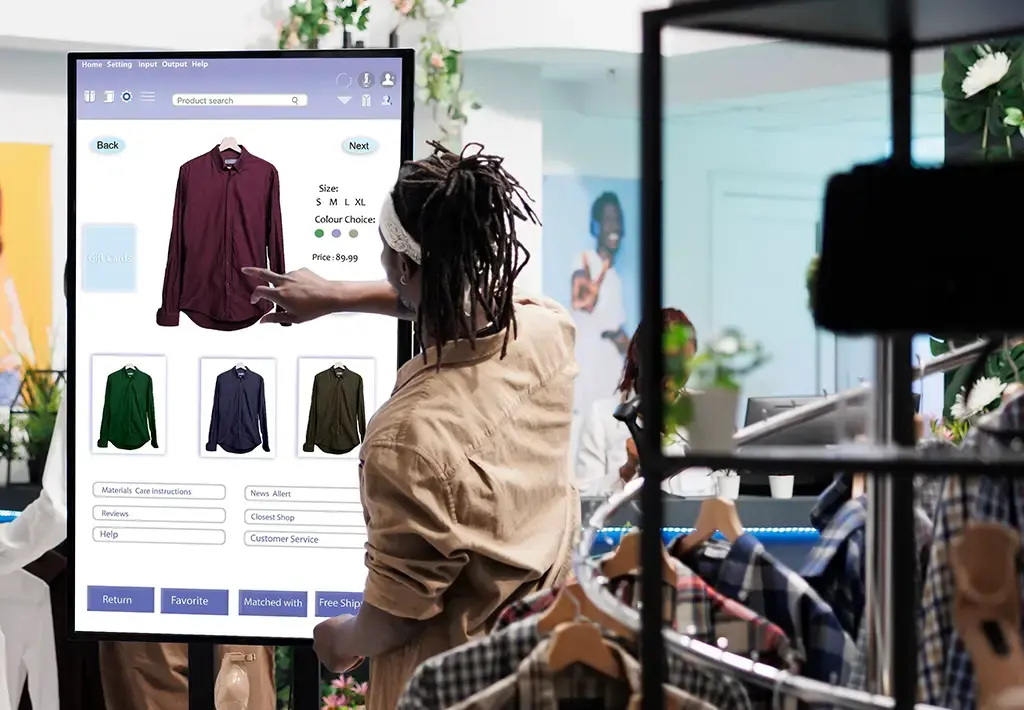Generating actionable insights has long been labour-intensive. Data engineers collect information from various sources, cleanse and process it and then analysts interpret the findings to share with business experts.
This process isn't just time-consuming; it's prone to error and bias. Even with polished data pipelines and dashboards, a one-size-fits-all approach often fails to address the unique needs of decision makers, in style or substance.
However, a new approach offers a solution – multi-agent AI, also known as agentic AI. Here, expert Gavin Jackson explores how leveraging AI in retail could transform the industry, unlock better decision making and fuel a responsive shopping experience.
The challenges of insight generation in retail
Many of my Mondays in retail were a blur of coffee, SQL scripts, dashboards and ad-hoc analysis. The furious activity culminated in performance reports and presentations that set the tone for the week ahead.
Each week, we tackled questions like: Why did sales miss target? What impact did the promo have? Why is customer satisfaction down? What if we increase media spend? The goal was thoughtful insight, but often, it felt like producing reactionary stats. The challenge wasn't just the complexity of transforming the data – it was also the conflicting objectives across business functions.
Agentic AI for retail data generation
Enter multi-agent AI – a game-changer for insight generation. Multi-agent AI involves systems where multiple autonomous agents work together to achieve specific goals. Each agent has specialised skills and knowledge, allowing them to perform complex tasks.
In retail, these agents combine proprietary data with business expertise to contribute unique insights based on their specialised focus. Imagine a virtual team where each member is an AI agent representing different departments: marketing, supply chain, finance and the customer.
These agents interpret retail data from the perspective of their domain, and then combine and summarise together, ensuring that outputs are highly actionable. New data or a question from an analyst or business expert can trigger the process, making it proactive and highly flexible.
To illustrate this, consider these examples:
- Data retrieval AI agent: Ensures source data is available for the system to function. The agent can write and execute SQL, as well as integrate with pre prepared data sources.
- Marketing AI agent: Focuses on consumer behaviour, campaign performance and market trends. It offers insights into customer segmentation, optimal advertising channels and promotional strategies.
- Supply chain AI agent: Analyses inventory levels, supplier performance and logistics. It recommends actions on stock replenishment, supplier requests and distribution efficiencies.
- Customer service AI agent: Monitors feedback, service metrics and satisfaction scores. It identifies opportunities for improving customer interactions and service delivery. Different customer personas can be reflected.
- Finance AI agent: Evaluates financial indicators like revenue, costs and profitability. It suggests budget reallocations, cost-saving measures and investment opportunities.
Collaboration for valuable insights
Traditionally, delivering valuable insights can take days or weeks. In contrast, multi-agent AI can process and analyse data in near real time or periodically throughout the day, enabling retailers to swiftly react to emerging trends or issues. For instance, if the marketing agent detects a spike in demand due to a viral trend, it can collaborate with the supply chain agent to assess inventory levels. Actions to prevent stockouts and lost sales are then recommended.
People like to consume information in different ways. A finance analyst might want numerical tables, while a marketing executive might prefer visual summaries. Multi-agent AI can tailor insights for each audience, making them both relevant and easy to understand.
Some of the best insights I’ve seen arise from analysts working closely with stakeholders – combining operational experience with analytical proficiency. Similarly, when AI agents representing different functions collaborate, they uncover insights that might be missed when departments work in silos. This holistic approach ensures decisions consider the full impact across the organisation.
For example, imagine the finance agent identifies a drop in sales for a product category while the customer service agent notes a rise in complaints about quality. Together, these insights might point to an issue with manufacturing, prompting a review.And it doesn’t stop there. AI agents can also take action. Whether dynamically changing prices, personalising marketing content or optimising inventory management, these agents unlock new efficiencies and revenue opportunities.
However, implementing multi-agent AI for insight generation isn’t without its challenges. The effectiveness of the system depends on data quality – it must be accurate, complete and timely. Integrating these agents requires thoughtful planning to ensure seamless data flow and compatibility across systems. Most importantly, organisations need a culture that embraces AI-driven insights, which may involve retraining staff and redefining roles.
An enterprise-ready agentic solution
A multi-agent system requires a robust framework. That’s why at Endava, we have developed the accelerator, Morpheus, to deliver enterprise-grade solutions.
Combining the power of data and multi-agent autonomous teams, our first-of-its-kind AI accelerator marks a significant step in applying advanced large language models (LLMs) across sectors – even those that are highly regulated. Through its unique design retailers can implement AI-driven innovation while ensuring appropriate guardrails.
By adopting such a solution, retailers can quickly embrace multi-agent AI as a tool to help them make informed decisions faster and with greater confidence. Multi-agent AI is poised to transform insight generation by providing timely, relevant and personalised insights across functions. This technology breaks down silos, enhances collaboration and helps retailers respond effectively to dynamic market conditions.
To learn more or discuss how we support retailers in delivering measurable value from these capabilities, get in touch.



